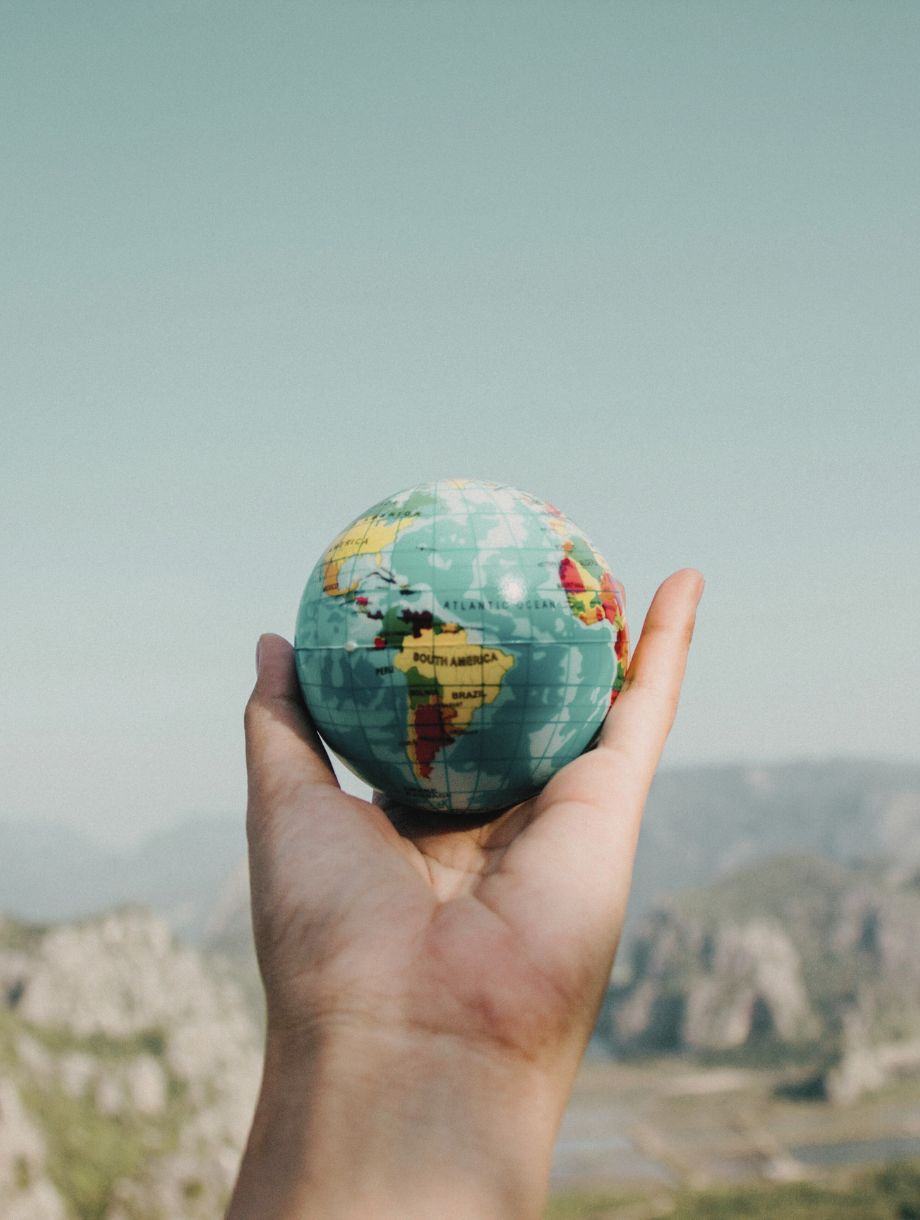

.png)


MANAGING YOUR ATTITUDE
Finding Strength and Positivity in Our Diverse World
There is nothing more important to leading your team than maintaining a positive attitude and counting your blessings. It’s not easy, and it’s a very personal thing, but it must be done. We all have times when doubts, fears, and negative thoughts creep into our thinking, especially when faced with significant challenges or setbacks. When that happens, the key is to know yourself well enough to be able to change the way you feel. Emotional “triggers” can help us do that. For some, just hearing their favorite songs will do it, bringing back memories of happier times and lifting their spirits. For others, it might happen by re-reading a personal letter from a loved one or looking at a certain family photo that evokes a sense of love and belonging.
For me, however, what works best is just to remind myself how blessed I am. I live in a great country that provides opportunities and freedoms that many around the world do not have. I have a wonderful family and wonderful friends I can turn to for support, people who genuinely care about my wellbeing. I continually remind myself to worry less about what I don’t have and to be thankful for what I do… to live with gratitude. This mindset shift can make a significant difference in how we approach our daily lives and our work.
Today, the world has surpassed eight billion people, a staggering number that highlights the vastness and diversity of human life on our planet. The intricacies of what each life may involve, such as geographic location, spiritual beliefs, and surrounding circumstances of the human condition, include diverse variables that shape our experiences and perspectives.
As of the beginning of 2024, according to estimates, the world had the following population age distribution: the younger generation, eager and energetic, ready to shape the future; the middle-aged, balancing responsibilities and aspirations; and the elderly, holding wisdom and experience. Each age group brings its unique contributions and challenges, reminding us of the importance of understanding and appreciating the rich tapestry of human existence.
2,084,569,466 Young People Under 15 Years Old
(1,077,744,528 males / 1,006,828,378 females) 25.6%
5,081,333,771 Persons Between 15 and 64 Years Old
(2,569,398,787 males / 2,511,954,917 females) 62.4%
590,141,646 Persons Above 64 Years Old
(261,787,349 males / 328,342,163 females) 7.2%
The following is something I keep in my desk and read from time to time to keep my attitude in focus. It's a constant reminder of the diverse and interconnected world we live in. I’ll share it with you:
If the Earth’s population were shrunk into a village of just 100 people – with all the human ratios existing in the world still remaining – what would this tiny, diverse village look like? This thought experiment, inspired by 100People.org, provides a fascinating snapshot of our global society. It highlights the vast diversity in culture, language, and lifestyle that can be found within such a small group, offering insight into the larger complexities of the world. This is what they found...
If the World were 100 People:
Gender
50 would be female
50 would be male
Age
25 would be 0-14
65 would be 15-64
10 would be 65 and older
Geography
15 would be from Sub-Saharan Africa
7 would be from Northern Africa and Western Asia
26 would be from Central and Southern Asia
29 would be from Eastern and South-Eastern Asia
8 would be from Latin America & the Caribbean
1 would be from Australia/New Zealand/Oceania
14 would be from Europe and Northern America
Religion
31 would be Christian
25 would be Muslim
16 would not be religious or identify themselves as being aligned with a particular faith
15 would be Hindu
7 would be Buddhist
5 people who practice a Folk religion
1 person would be Jewish or practice another religion
First Language
12 would speak Mandarin Chinese
6 would speak Spanish
5 would speak English
5 would speak Arabic
4 would speak Hindi
3 would speak Bengali
3 would speak Portuguese
2 would speak Russian
2 would speak Japanese
58 would speak other languages
Overall Literacy
87 would be able to read and write
13 would not
Literacy by Gender
90% of males would be able to read and write
10% of males would not be able to read and write
83% of females would be able to read and write
17% of females would not be able to read and write
Education
91% of eligible males would have a primary school education
90% of eligible females would have a primary school education
66% of eligible males would have a secondary school education
66% of eligible females would have a secondary school education
36% of eligible males would have a tertiary/college degree
41% of eligible females would have a tertiary/college degree
Shelter
78 people would have an adequate place to shelter them from the wind and the rain, but 22 would not
Urban/Rural
57 would be urban dwellers
43 would be rural dwellers
Drinking Water
92 would have access to safe drinking water
8 would use unimproved water
Food
11 would be undernourished
29 would be moderately or severely food insecure
Infectious Disease
1 would have HIV/AIDS
3 would experience Long COVID
Poverty
8 would live in Extreme Poverty at less than $2.15 USD per day
Electricity
91 would have electricity
9 would not
Technology
91 would be cell phone users
66 would be active internet users
95 live in an area with a mobile- cellular network
Sanitation
79 would have access to a private toilet or latrine
21 would not have access to a private toilet or latrine
Think of it this way… if you live in a good home, have plenty to eat, and can read, you are a member of a very select group. Imagine the millions who go to bed every night without knowing where their next meal will come from or without a roof over their heads. And if you have a good house, food, can read, and have a computer, you are among the very elite. This level of comfort and convenience is a luxury that many can only dream of.
If you woke up this morning with more health than illness, you are more fortunate than the million who will not survive this week. There are countless individuals battling severe illnesses without access to proper medical care. If you have never experienced the danger of battle, the loneliness of imprisonment, the agony of torture, or the pangs of starvation, you are ahead of 500 million people in the world. The trauma and suffering faced by so many are beyond what most of us can imagine.
If you can attend a church meeting without fear of harassment, arrest, torture, or death, you are fortunate, because more than three billion people in the world can’t. The freedom to practice one's faith openly is a privilege that is denied to a significant portion of the global population. If you have food in the refrigerator, clothes on your back, a roof over your head, and a place to sleep, you are richer than 75% of the world. The basic necessities we often take for granted are scarce commodities for the majority.
If you can read these words, you are more blessed than over two billion people in the world who cannot read at all. Literacy opens doors to opportunities and knowledge that remain out of reach for so many.
We are all very blessed in some way, but occasionally we need to be reminded. For me, when I get a little down or when negative thoughts begin to creep in, I take out that sheet of paper and read what is written above. It quickly brings my life and my blessings into perspective. This simple act of reflection helps me appreciate the abundance in my life and reminds me to be grateful for the things I often overlook. It’s a powerful reminder that even on our toughest days, we have so much to be thankful for.


.png)
.png)

